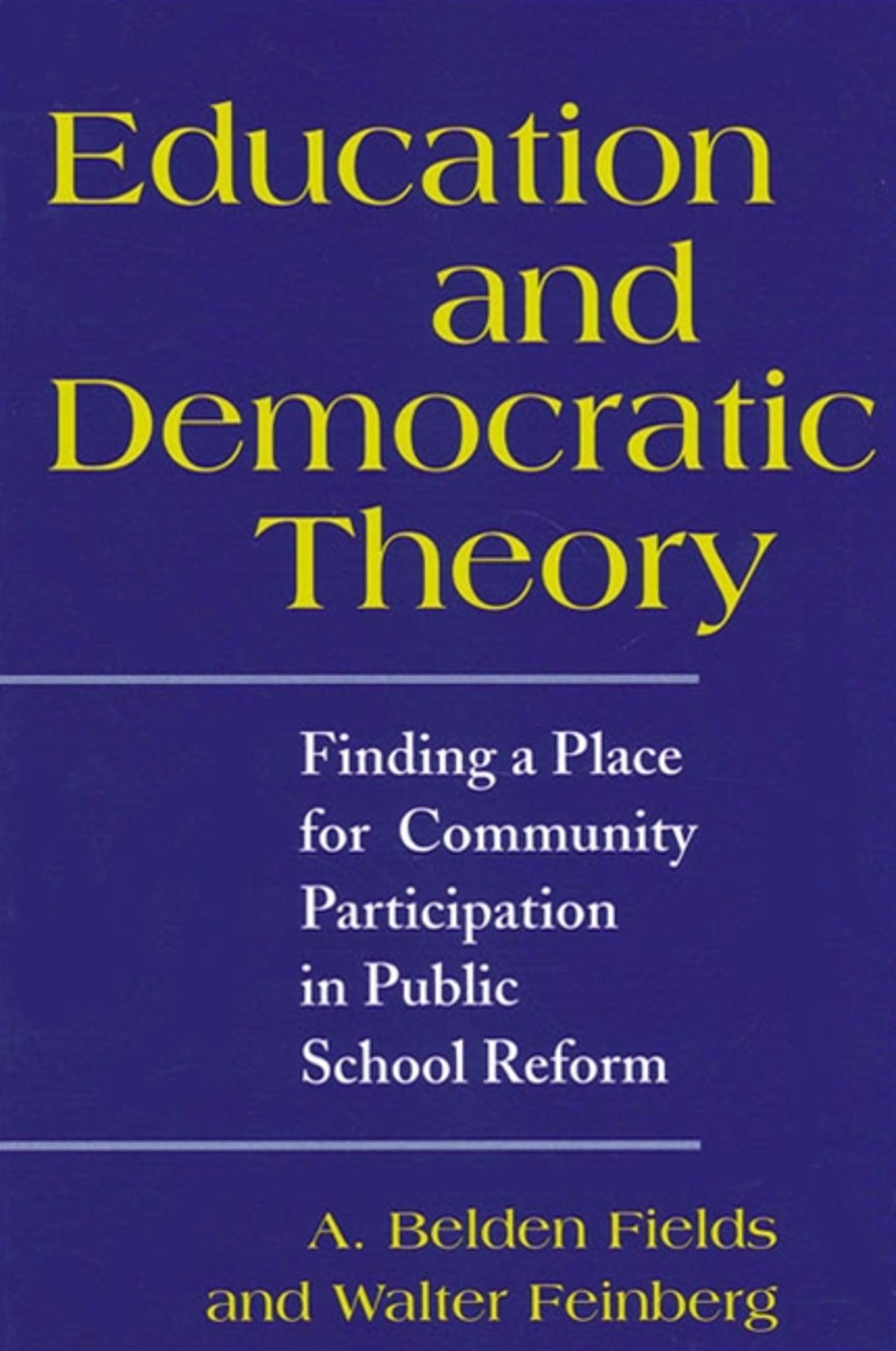We're sorry. An error has occurred
Please cancel or retry.
Education and Democratic Theory

Some error occured while loading the Quick View. Please close the Quick View and try reloading the page.
Couldn't load pickup availability
- Format:
-
19 April 2001

A ground-breaking look at how access to decision making in the public schools can be extended to all, even previously excluded segments of the community.
Winner of the 2001 American Educational Studies Association Critics' Choice Award
Much has been made of the gap between public schools and the communities that they serve. This book shows how a group of teachers, parents, and community people in "Ed City" formed an educational reform group-the Project for Educational Democracy-to increase access to decision making in their school system, especially for members of the community who had previously been excluded. A combination of ethnographic research and theoretical reflection, this book addresses concepts of community, authority, representation, participation, and democracy.


"Fields and Feinberg ought to be praised for not glossing over the very sticky problems associated with bringing members of previously excluded segments of community into educational decision making." — Library Journal
"This is an important story about an issue of deep concern to educators and citizens alike, told in a way that is vivid and compelling—the problem of public participation and the future of our public schools and democratic life. The authors include many elements of good story-telling: the creation of tension, the attention to character and detail, an understanding of the flow of narrative energy. Ed City is a case that will be referred to for a long time in the discussion of democratic school change." — William Ayers, author of A Kind and Just Parent: The Children of Juvenile Court
"…a very comfortable and competent consideration of the potential for democratic governance of education using a particular case study. The calmness of the book is refreshing in contrast to many highly ideologically charged works that know all the answers before the study begins. This book is also unusually responsible in its unwillingness to pin blame on any single 'devil,' instead considering the world as viewed by those in different positions interacting with one another." — Eric Bredo, coeditor of Knowledge and Values in Social and Educational Research
Acknowledgments
Introduction
Chapter One. Democracy in Small Places
Chapter Two. A Failed Attempt
Chapter Three. Engaging in Democratic Discourse Democratically (with Norman Denzin)
Chapter Four. Race and School in Ed City (with Norman Denzin)
Chapter Five. The PED’s Challenge to Traditional Authority: The School Board
Chapter Six. The Meeting of Bureaucratic and Dialogical Authority: The District Committee
Chapter Seven. Cooperation and Co-optation
Chapter Eight. Conclusion: Competing Conceptions of Democratic Education and Theory
References
Index



